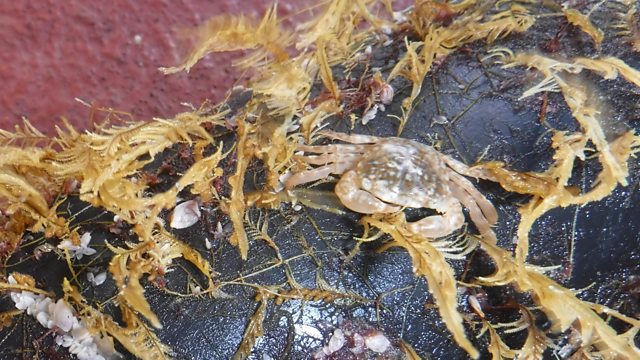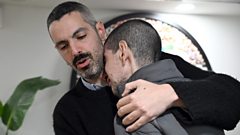Coastal species living at sea on 'little plastic islands'
Scientists want to study how coastal and marine species living on pieces of plastic waste will impact on the different creatures
Pictures of sea animals caught up in plastic has been one of the main drivers for activism to try to get us all to cut down on our plastic usage and clean up the sea and shoreline.
But now research has found that marine life is not only adapting to the polluted environment - many creatures normally found on coasts are also being transported far and wide to different parts of the ocean.
This might sound positive... but scientists say they now need to study what impact this could have on both these creatures and others.
Dr Linsey Haram is a marine biologist with the Smithsonian Environmental Research Center (SERC) - whose team has done the research in the North Pacific Ocean.
"There is a tendency to think 'oh this is just creating a new habitat for coastal species, isn't that a good thing?'. But in reality we don't know the downstream consequences of these organisms living on plastics. We don't know how plastic affects their long-term health and fitness, we don't know what the consequences are of these coastal species interacting with oceanic species... We absolutely cannot say this is a positive thing."
(Photo: A crab and barnacles found deep in the ocean on a piece of plastic. Credit: Smithsonian)
Duration:
This clip is from
More clips from Newsday
-
![]()
'I immediately called my mother, I told her that I was alive'
Duration: 02:21
-
![]()
'People on both sides have suffered enough'
Duration: 04:44






